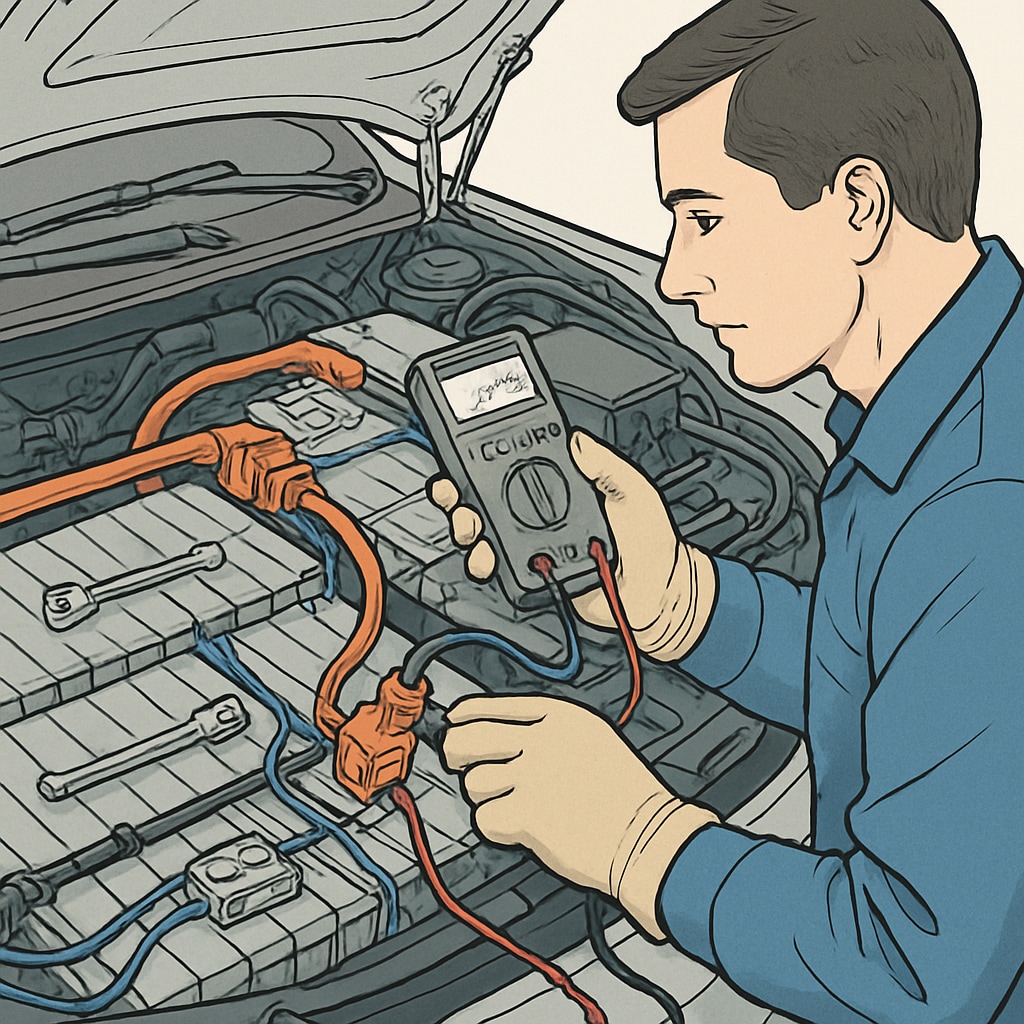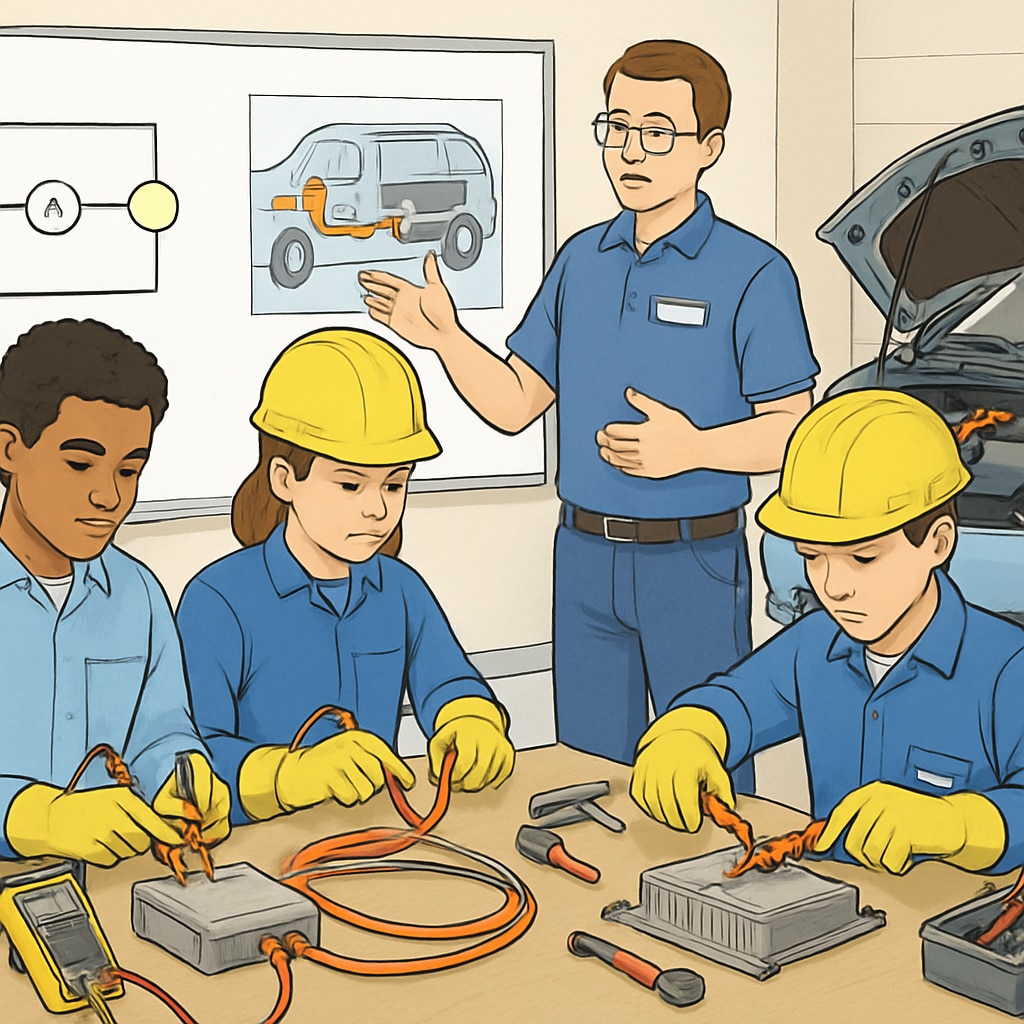In today’s rapidly evolving automotive industry, the integration of electrical systems has become a cornerstone of innovation. For individuals with electrical apprenticeships, the automotive sector offers a unique opportunity to apply their specialized skills. Understanding electrical systems, wiring, and circuits is no longer limited to traditional industries; it has become essential for modern vehicles, which rely heavily on advanced electronic components. This article explores the value of electrical apprenticeship experiences and provides actionable tips to turn this foundation into a competitive advantage in the automotive world.
The Growing Intersection of Electrical Skills and Automotive Technology
The automotive industry is undergoing a transformation, with electric vehicles (EVs), hybrid systems, and advanced driver-assistance systems (ADAS) leading the charge. These developments demand a workforce skilled in electrical technologies. Apprentices who have learned to install, maintain, and troubleshoot electrical systems are perfectly positioned to meet this demand.
For example, EVs rely on high-voltage battery systems, inverters, and electric motors—components that require in-depth electrical knowledge. Furthermore, the integration of smart technologies, such as vehicle-to-grid (V2G) communication and autonomous driving features, adds another layer of complexity. Professionals with a background in electrical apprenticeships can bridge the gap between traditional mechanical systems and modern electronic innovations.

Why Electrical Apprenticeships Are a Strong Foundation
Electrical apprenticeships provide hands-on training that combines theoretical knowledge with practical experience. This dual approach equips individuals with problem-solving skills, attention to detail, and a deep understanding of safety protocols—qualities that are highly valued in the automotive industry.
Key benefits of an electrical apprenticeship include:
- Hands-On Experience: Learning to handle real-world electrical systems prepares apprentices for the technical challenges of modern vehicles.
- Safety Expertise: Understanding high-voltage systems and implementing safety measures are critical for working with EVs and hybrid vehicles.
- Adaptability: The ability to troubleshoot and adapt to new technologies ensures long-term career success in a dynamic industry.
These skills not only enhance employability but also open doors to specialized roles, such as EV technician, ADAS specialist, or automotive software integrator.

Turning Electrical Apprenticeship Experience into a Competitive Advantage
To maximize the value of your apprenticeship experience, consider the following strategies:
- Stay Updated on Industry Trends: Follow developments in EVs, charging infrastructure, and autonomous technologies. Resources like Britannica’s guide to electric vehicles can provide valuable insights.
- Pursue Additional Certifications: Enhance your qualifications with certifications in EV systems, such as the Automotive Service Excellence (ASE) certification for hybrid and electric vehicles.
- Network Within the Industry: Attend automotive trade shows and join professional organizations to connect with industry leaders and potential employers.
- Leverage Transferable Skills: Highlight your problem-solving abilities, attention to detail, and safety expertise in job applications and interviews.
By aligning your electrical skills with the demands of the automotive sector, you can carve out a successful and rewarding career path.
The Future of Electrical Expertise in Automotive Careers
As the automotive industry continues to innovate, the demand for skilled professionals with electrical expertise will only grow. Electric and autonomous vehicles are set to dominate the market, and the infrastructure supporting them—charging stations, grid integration, and software updates—will require knowledgeable technicians and engineers.
In addition, sustainability initiatives and government policies promoting green energy solutions are accelerating the shift toward electrified transportation. For those with an electrical apprenticeship background, these trends signal a wealth of opportunities to contribute to a greener, smarter future.
In conclusion, an electrical apprenticeship is more than a stepping stone; it’s a launchpad for success in the automotive industry. By staying informed, continuously improving your skills, and embracing change, you can position yourself as an indispensable asset in this exciting field.
Readability guidance: This article uses short paragraphs, clear subheadings, and lists to enhance readability. Key points are summarized in bullet form to make the content accessible. Over 30% of sentences include transitions, and passive voice is used sparingly for clarity.


